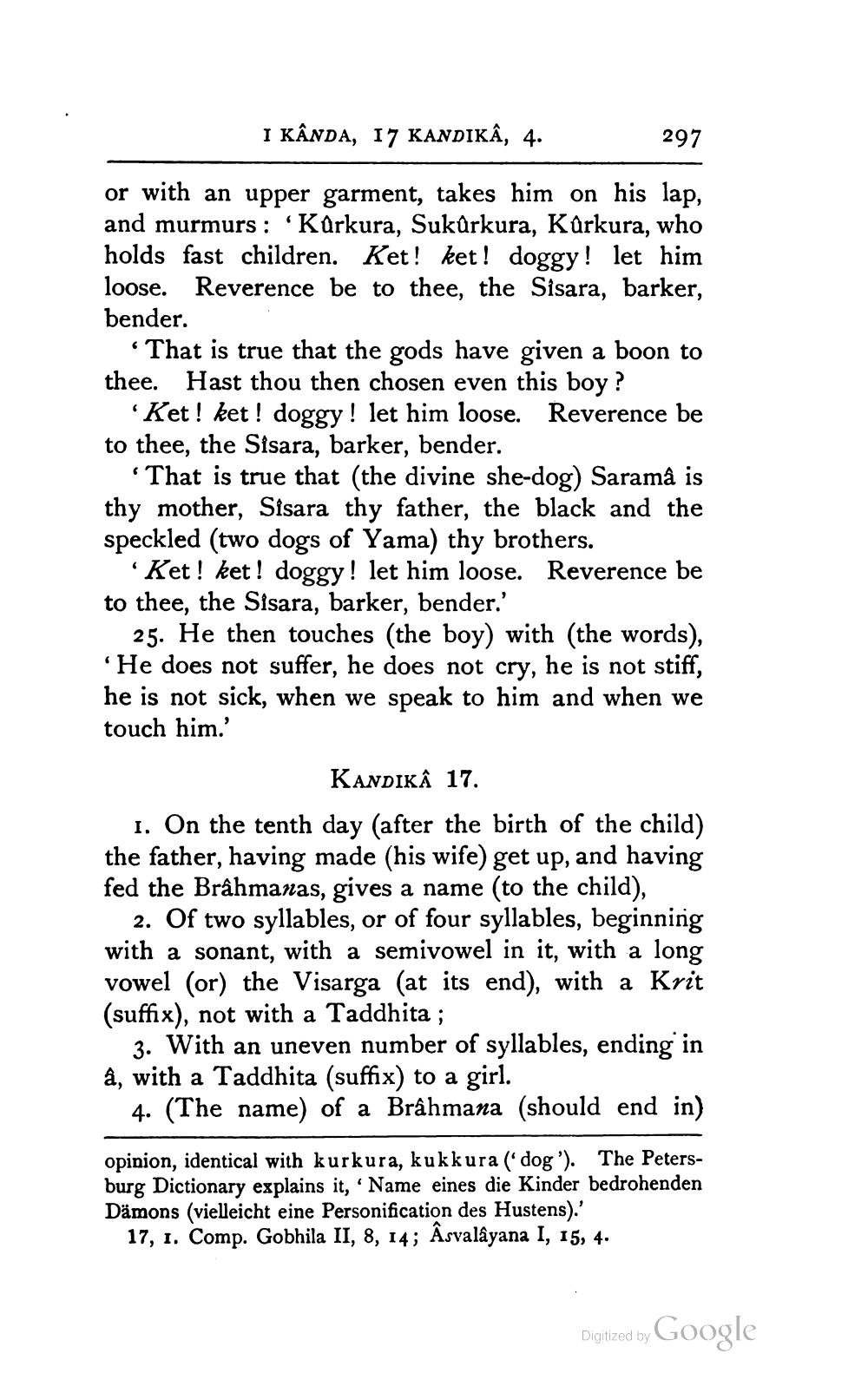________________
I KANDA, 17 KANDIKA, 4.
or with an upper garment, takes him on his lap, and murmurs: 'Kurkura, Sukûrkura, Kûrkura, who holds fast children. Ket! ket! doggy! let him loose. Reverence be to thee, the Sisara, barker, bender.
297
'That is true that the gods have given a boon to thee. Hast thou then chosen even this boy?
'Ket! ket! doggy! let him loose. Reverence be to thee, the Sisara, barker, bender.
'That is true that (the divine she-dog) Saramâ is thy mother, Sisara thy father, the black and the speckled (two dogs of Yama) thy brothers.
'Ket! ket! doggy! let him loose. Reverence be to thee, the Sisara, barker, bender.'
25. He then touches (the boy) with (the words), 'He does not suffer, he does not cry, he is not stiff, he is not sick, when we speak to him and when we touch him.'
KANDIKA 17.
1. On the tenth day (after the birth of the child) the father, having made (his wife) get up, and having fed the Brahmanas, gives a name (to the child),
2. Of two syllables, or of four syllables, beginning with a sonant, with a semivowel in it, with a long vowel (or) the Visarga (at its end), with a Krit (suffix), not with a Taddhita;
3. With an uneven number of syllables, ending in â, with a Taddhita (suffix) to a girl.
4. (The name) of a Brahmana (should end in)
opinion, identical with kurkura, kukkura ('dog'). The Petersburg Dictionary explains it, 'Name eines die Kinder bedrohenden Dämons (vielleicht eine Personification des Hustens).'
17, 1. Comp. Gobhila II, 8, 14; Âsvalâyana I, 15, 4.
Digitized by Google




